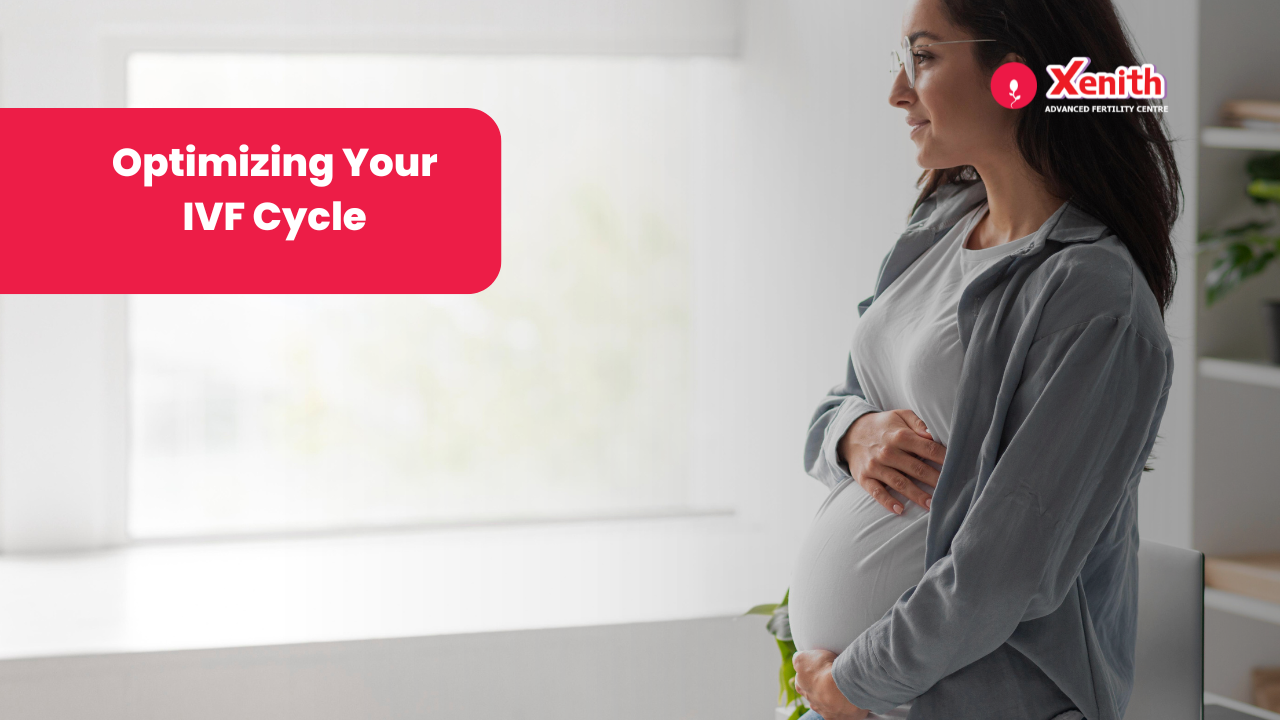Infertility is defined as the inability to conceive after having unprotected sex for more than a year. Assisted reproductive technologies (ART) like in vitro fertilization (IVF) are then used to aid people dealing with infertility to conceive. In IVF, a woman’s ovaries are stimulated to mature more than one egg at the same time through medications. These mature eggs are then retrieved, fertilized with sperm in a laboratory and then transferred back into the uterus for implantation which if successful leads to a pregnancy. Various factors are thought to affect fertility with the main one being age. Other factors include genetics, body mass index, duration of infertility, lifestyle, number of recovered eggs, endometrial thickness, number of transferred embryos, quality of the transferred embryo, physical environment, genetics, psychological factors, hormonal levels, sperm and egg characteristics.(1) You cannot have control over certain factors like genetics and age. As a woman ages, the chances of a successful pregnancy decreases due to lesser number of available eggs, decreased egg quality, and increased incidence of genetic disorders.
Before you even try to conceive, it’s important that your body is receptive to having a child. Begin taking folic acid supplements, prenatal vitamins and other supplements at least a few months before trying. Folic acid could prevent brain and spinal defects in the fetus and help in proper development of the fetus. Talk to your doctor about which supplements to take.

Free Thursday Consultation
Book Your AppointmentSo, let’s look at what you can do to maximize success when you are going through an IVF cycle.
- Body mass index- is a way of estimating the amount of body fat you have by using your height and weight parameters. Being obese or even underweight could affect fertility, lead to issues with menstruation and could cause problems for the mother during pregnancy. Obesity seems to impair responsiveness to medications used to stimulate the ovaries and thus higher doses are needed during IVF treatment. There is also increased risk of cancelled IVF cycles, preterm delivery, low birth weight, miscarriage, implantation rates, pregnancies, and live birth rates. (2) So, it’s important to maintain a healthy weight while going through IVF. Get regular exercise of at least 30 minutes a day and try to lose weight if you are obese.
- Lifestyle- could play an important role in successful IVF treatment. Try to eat a healthy, well balanced diet rich in fruits, vegetables, nuts, legumes, whole grains, yoghurt, fish and other healthy foods or follow the Mediterranean diet which is more plant based. Avoid processed, refined, fried and fast foods. Stop smoking, stop drinking alcohol, and stop drinking excessive caffeinated drinks but drink lots of water. Get 7 to 8 hours of sleep each night and try to remove stressors in your life or learn how to manage stress. Avoid exposure to any environmental toxins. Practice self care during IVF and take lots of breaks for yourself.
- Mental and psychological factors- Dealing with infertility could cause a severe blow to a person’s psyche. It could lead to feelings of guilt, shame and low self esteem eventually leading to anxiety and depression. If these negative feelings are not dealt with, it could lead to decreased fertility, pregnancy rate and decreased success in IVF treatment.(3) So, it’s essential to talk to a close friend or family, join a support group or talk to a counsellor to learn how to deal with such feelings.
- Hormonal levels- imbalanced levels of hormones in your body due to certain disorders like polycystic ovarian syndrome and others could play havoc with your reproductive system and increase chances of IVF treatment failures and decrease pregnancy rates. Various hormones like luteinizing hormone, estradiol, follicle stimulating hormone and others could affect the success of IVF treatment. They could affect your menstrual cycle, egg maturation, the body’s response to ovulation inducing medications, implantation in the uterus amongst other things. Other health disorders like diabetes or thyroid disorders could also affect fertility. So, it’s important to check levels of these hormones, keep your weight in check and follow a healthy balanced diet as well as get enough sleep.
- Inflammation in the reproductive system- certain issues like endometriosis and fibroids could lead to inflammation in the uterus or other parts of the reproductive system leading to decrease in pregnancy rates. It’s important to follow a proper diet and exercise regularly to optimize the chances of pregnancy. Fibroids or endometrial tissue might need to be removed through surgery to facilitate implantation and accommodate a growing fetus in the uterus.
- Pre Genetic testing– sperm and egg quality could deteriorate due to age or other factors. It could be useful to test the fertilized egg for any genetic disorders before transferring it to the uterus for implantation to increase the chances of pregnancy.
- Men should avoid ejaculation 3 to 4 days before providing sperm samples for IVF in order to provide good quality and good quantity sperm.
- Find a good fertility clinic with a good endocrinologist and experienced staff. The staff at Xenith Advanced Fertility Centre is a patient centered clinic that is well versed in the latest technological advances and has the best equipment to optimize your IVF treatment to maximize your chances of conception. They have high IVF success rates especially for those who have experienced previous IVF failures, offer in-house counsellors and have even won several awards nationally.
- Educate yourself about what IVF treatment entails and be prepared for any curves in the journey. Certain medications that you are taking could interfere with your fertility medication and it might help to talk to your doctor about all your questions and it might even help to talk to any person who’s already gone through IVF in the past to find out about their experience and any other details about what to expect during the IVF treatment. If there are any leftover fertilized eggs, you could consider freezing your embryos for the future.
Getting prepared for IVF and going through it could be challenging but try to increase your chances of going through a successful pregnancy by following the above tips. If you have any questions for Optimizing IVF Cycle, feel free to talk to the experts at Xenith Advanced Fertility Centre.




